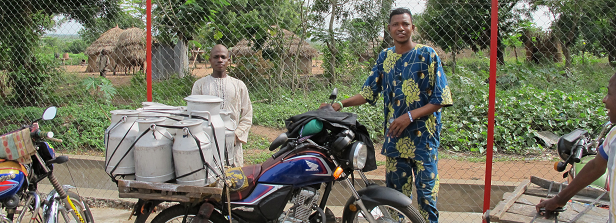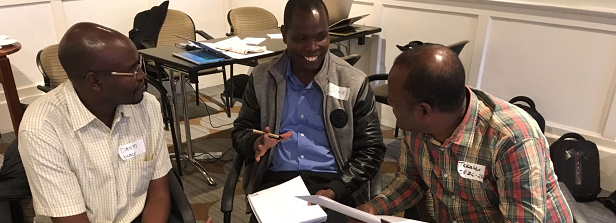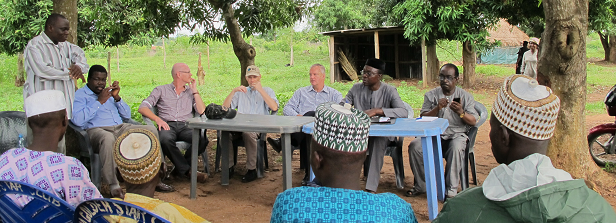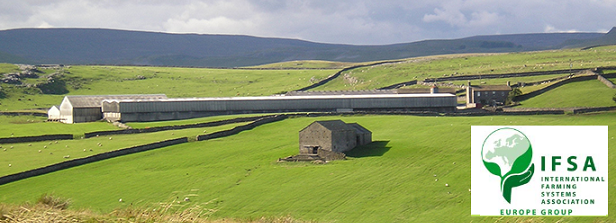Intermediaries in inclusive business networks for scaling food security in East & West Africa
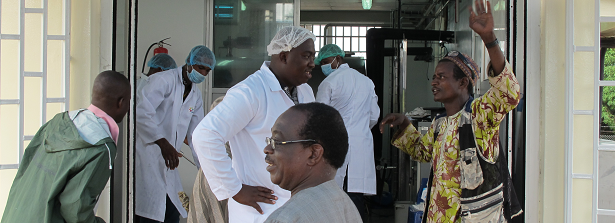
Duration: March 01, 2015 – September 30, 2017
Project information
Aim: In Sub-Saharan Africa large public-private partnerships work on achieving food security at scale by establishing inclusive business models. This research investigates how intermediaries facilitate interactions between the partners at different levels of the value chain and contribute to cross-cultural communication between Northern and Southern partners. The main research question is: “How do international innovation intermediaries contribute to sustainable and scalable business development strategies that aim to improve food and nutrition security for the BOP?”. To answer this question this research aims to provide a better understanding of the role of intermediary engagement in creating private sector driven cross border innovation partnerships in order to develop viable and scalable inclusive innovations on food and nutrition security that lead to the improved wellbeing of low income consumers, producers and entrepreneurs in local and regional agro-food supply chains in developing countries.
Objective: The objectives of this research are to: identify the key characteristics of international intermediaries to enable the private sector to develop impactful inclusive business strategies for improved food and nutrition security in East and West Africa; build capacity within the 2SCALE consortium on the roles and responsibilities that contribute to the effective development of collaborative networks for inclusive innovations in agribusiness clusters in East and West Africa; and establish a community of practice on impactful inclusive business development with international inclusive business intermediaries.
Method: The research is based on a case study strategy, and follows a quantitative and qualitative research approach to discover more about how the intermediary organizations could develop different roles over a certain period of time and at different levels of intervention. The methodology combines historical and longitudinal study approaches and the intent is explanatory. The research provides insights and propositions that can be tested, as is the case of other researches that focus on processes.
Countries: Nigeria, Republic of Côte d’Ivoire and Kenya.
Dutch policy goals: More efficient markets; and A better business climate.
Progress reports
Year 1: The main research question is: How do international innovation intermediaries contribute to sustainable and scalable business development strategies that aim to improve food and nutrition security for the BOP? From January- December 2015 we designed the research protocol, selected the 4 case studies (Nigeria: dairy and cocoa, Kenya: potato and coffee), collected case documents, mapped the historic development of the case studies and key actors involved, conducted more than 50 interviews, build a long list of international intermediary organisations that work on inclusive business, organized 3 partner meeting to discuss project progress and 1 expert meeting to discuss development training materials.
Year 2: The interview guideline was improved after the first case study was conducted. The role of international intermediary organisations in a sustainable coffee and potato initiative in Kenya and a cocoa case in Nigeria were researched using the case study method. Desk research was conducted, key actors and key events identified, and 34 semi structured interviews were held. The structure to code the qualitative data in Atlas.ti was further improved based on literature research. All interviews were transcribed and coded in the Atlas.ti software. The article “Unraveling inclusive business models for achieving food security in BOP markets” was presented in July at the International Farming Systems Association Conference in England, and submitted to the Food Security Journal. The first training on Intermediation and Food security was held by ICRA in November 2016 in Wageningen for an audience of 17 experts from 14 countries. A survey to do a mapping and develop a typology of international and cross cultural inclusive innovation intermediaries was developed and executed.

